VMRO-DPMNE presidential candidate Gordana Siljanovska – Davkova scored a huge victory in the first round of the presidential elections over SDSM candidate and incumbent President Stevo Pendarovski, and five other candidates.
According to the State Electoral Commission, with over 90 percent of the vote counted, Siljanovska won over 330 thousand votes, against 164 thousand for Pendarovski. a projected difference of over 160,000 votes. The elections will go to a run-off to be held along with the general elections on May 8th, and this is what particularly worries SDSM – experts were predicting that the winner of the first round will enjoy a boost in the second round, that will translate to greater support for the party in the far more important general elections. At one point SDSM were counting on this to help them reduce VMRO’s lead, as they believed that Pendarovski will have the support of their powerful coalition partner DUI in the first round, and the even outcome will demoralize VMRO voters. But SDSM was unable to seal a deal with DUI for a pre-election coalition, the parties went their separate ways in the presidential vote as well, and now SDSM leader Dimitar Kovacevski was forced to field questions whether he intends to resign just two weeks before the general election.
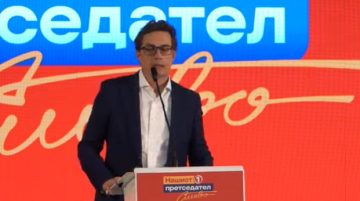
Pendarovski and Kovacevski acknowledged the major defeat but insisted that they will continue with the campaign in the hope that things will somehow turn around.
The margin will likely be around 130,000 votes. We expected it will be smaller. But tomorrow is a new day. I will continue my meetings with citizens tomorrow as I did until now. We begin from the start and my task will be to present the concept that I deeply believe in, the concept of a country that is not isolated, that is integrated in Europe and that has no internal divisions, Pendarovski said during his press conference, which contained a germ of infighting, as he discussed whether it was SDSM unpopularity that dragged him down. Pendarovski is especially shaken given that at one point, in the frantic post-election tallying of votes by professional teams in both big parties it looked as if he could drop in third place, behind Foreign Minister Bujar Osmani who ran for President nominated by DUI.
The mood couldn’t be more different .across town, in front of the VMRO-DPMNE buildng where hundreds of supporters came with musicians to celebrate.
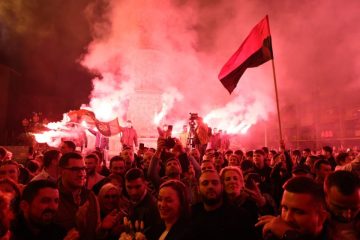
.This result is incredibly inspiring for me,. I will deliver what I promised, since day one. The run-off is coming and I will compete againt my opponent with due respect. I expect the same from the other side, said Siljanovska, who now more than reciprocated to Pendarovski for the defeat she suffered in their first presidential confrontation in 2019
Party leader Mickoski struck a sober note, warning about the exceptionally difficult situation Macedonia is in after almost eight years under SDSM and DUI. He announced that he already spoke with one of the defeated candidates, Arben Taravari, who ranked fifth, and whose support could make Pendarovski’s slim theoretical chances to make a comeback in the second round with the help of the Albanian voters beyond the realm of possibility.

SDSM officials were largely quiet about the (remote) possibility that by joining with the two feuding Albanian political blocs they will be able to overturn the major victory Siljanovska won in the first round. During the campaign SDSM officials constantly repeated the mantra that they have “greater coalition capacity” than VMRO, insisting that they are more palatable to the Albanian political parties because they are far more willing to make concessions with Macedonian national positions in exchange for (the promise of) faster EU integration.
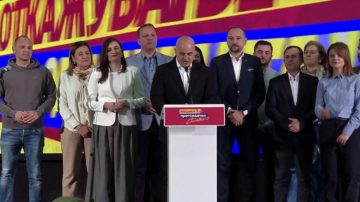
But this position apparently sits very badly with ethnic Macedonians, who are supposed to provide the core voting base for SDSM. Their one top ethnic Albanian official, Fatmir Bytyqi made a comment in this direction after the elections. “I don’t believe that the Albanian electorate can spill over toward anyone else other than Stevo Pendarovski”, said Bytyqi. But the prospect of an extremely weakened SDSM trying to cobble a presidential election win and maybe even a new coalition with enormous debts owed to the Albanian parties is likely to be rejected by the voters, who are visibly angry over the major expansion of power and influence by the DUI party under the second Zaev term and Kovacevski’s term, and the daily corruption scandals that came with it. So Kovacevski and Pendarovski toned down their talk about “coming from behind” and beating VMRO with the Albanian electorate.
Taravari said that he has not pledged to support any candidate in the second round yet. And his political ally, Tetovo Mayor Bilal Kasami, said that they have every right to represent the Albanian voters in the next Government instead of DUI, given that DUI relied on support from other ethnic groups like the Roma and Turks in this election.
VLEN won the Albanian vote. DUI lost its legitimacy to represent the Albanians. Translated into seats in Parliament, these results will yield a minor difference, Kasami said. Osmani won over 112,000 votes with 91 percent of the total counted, while Taravari has just under 80,000 votes.
The elections also elevated another potential coalition partner for VMRO-DPMNE. Kumanovo Mayor Maksim Dimitrievski, who broke with SDSM over their endless concessions to Greece, Bulgaria and the Albanian national cause, won over 73,000 votes, largely taken from the SDSM rank and file. These votes can support Siljanovska in the second round, and Dimitrievski can form a significant group in Parliament that will almost certainly be enough to give a VMRO-DPMNE led post-election coalition 61 seats even before counting the ethnic Albanian partner. Meanwhile, the populist Levica party, who SDSM was counting on to take votes from VMRO, did relatively poorly – their candidate Biljana Vankovska is projected to win under 40,000 votes.


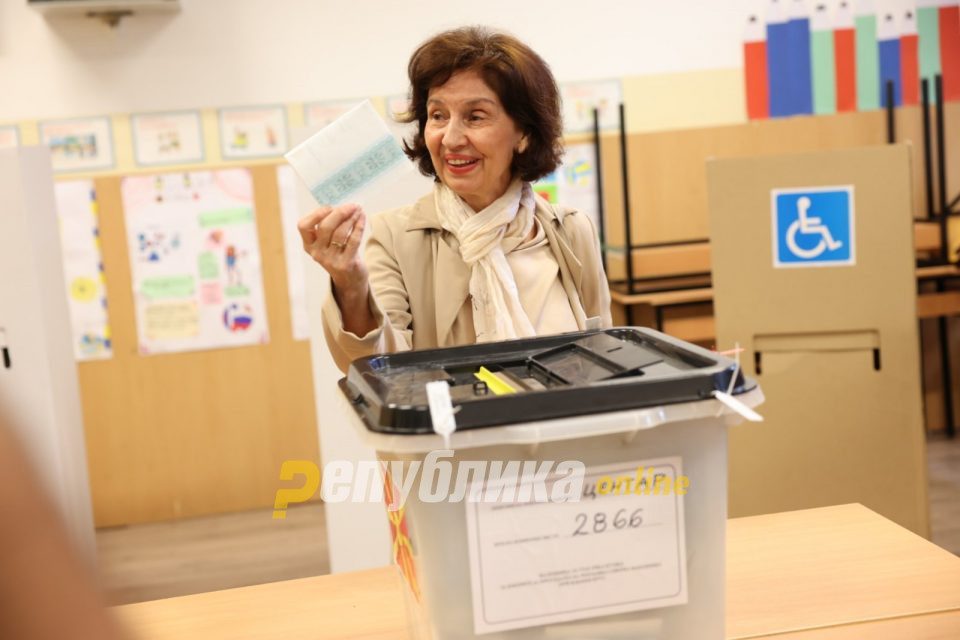
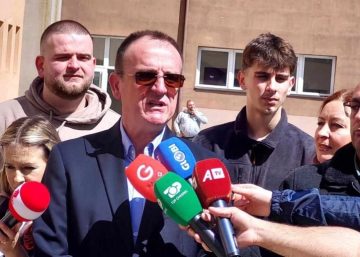

Comments are closed for this post.